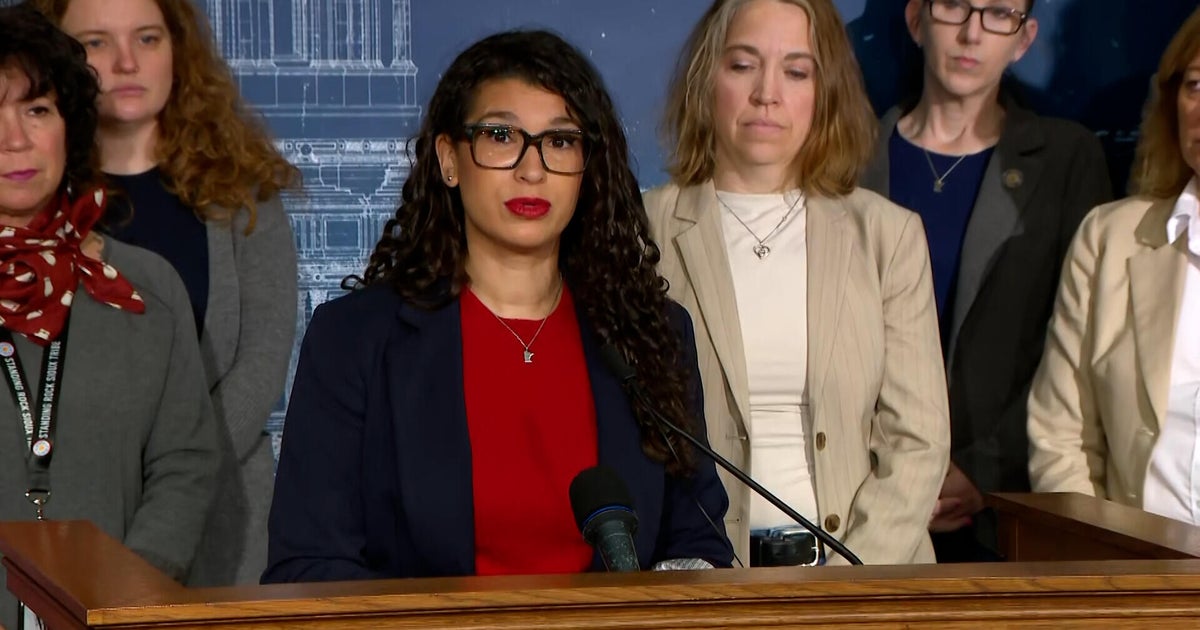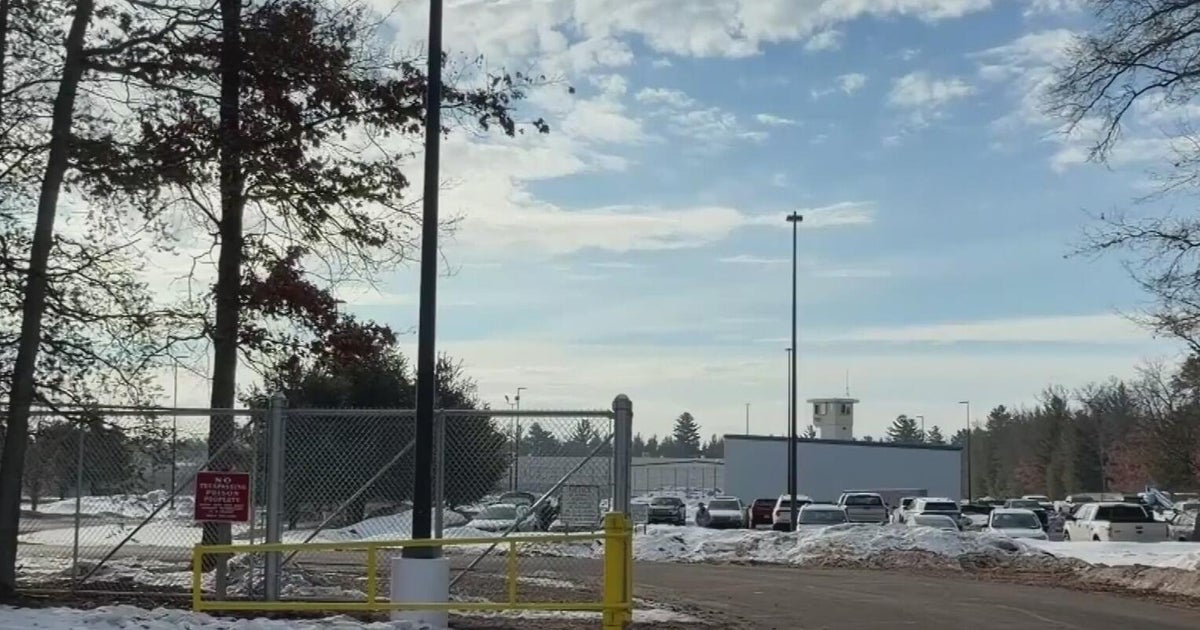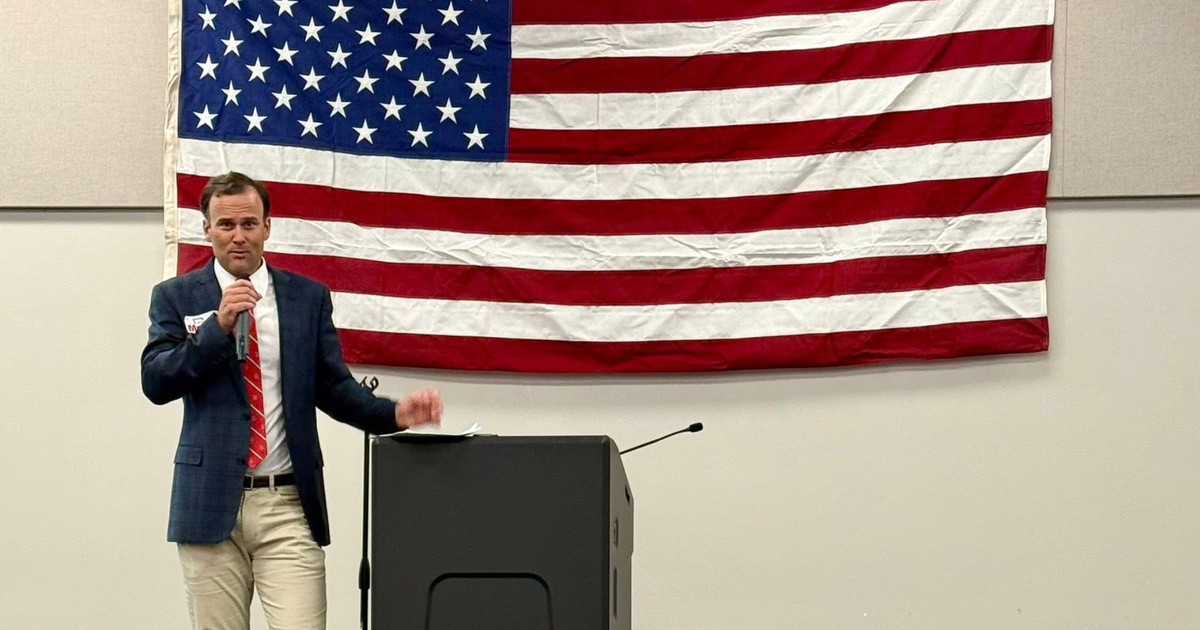Senators eye border deal framework as early as Sunday, though parole policy remains sticking point
Washington — The bipartisan group of senators working on dramatic changes to the nation's asylum and border security laws is attempting to agree to the framework of a landmark deal as early as Sunday, four people familiar with the talks told CBS News on Friday.
The group of lawmakers has made significant progress this week after the White House signaled it was willing to accept drastic limits on asylum and a vast expansion of detention and deportation efforts, according to people involved in or briefed on the talks who requested anonymity to discuss the closed-door meetings.
Republicans in Congress have conditioned any further military aid to Ukraine and funding for border operations — key components of President Biden's multi-billion-dollar national security package — on congressional Democrats and the White House backing asylum restrictions and broader legal authorities to deport migrants crossing the U.S. southern border unlawfully.
Over the past 48 hours, the White House and the small group of senators involved in the negotiations have reached high-level agreements on the asylum front, including on raising the threshold for passing initial asylum interviews and creating an authority to expel migrants without hearing their claims for humanitarian protection during spikes in illegal border crossings. They have also agreed on expanding the detention of migrant adults who are allowed to stay in the U.S. pending a review of their cases.
"We are encouraged by the continued progress of today's meetings," White House spokesperson Angelo Fernández Hernández said in a statement to CBS News Friday. "While we are not there yet, we believe these conversations are continuing in the right direction."
The divide over parole
But the immigration parole authority remains a sticking point, the people said. It's a law dating back to 1952 that the Biden administration has used on an unprecedented scale, invoking it to resettle Afghan evacuees, Latin American and Haitian migrants with American sponsors and Ukrainians displaced by Russia's invasion. The administration has also used a form of parole to release some migrants from U.S. custody at the border, including those in Mexico who secure appointments to enter the country via a government phone app.
The Biden administration has argued that the availability of legal entries under the parole policy discourages would-be migrants from crossing the U.S. southern border illegally. But Republicans have argued the administration is abusing parole to admit hundreds of thousands of migrants who would otherwise not qualify to be in the U.S. They have demanded major limits on its use.
So far, people familiar with the administration's outreach told CBS News that the White House has been telling Democratic lawmakers it will not budge on parole. But many Republicans have insisted that any deal needs to include changes to the authority, which is being challenged by GOP state officials in Texas.
While the negotiators are working to have a framework as early as Sunday, that could slide to Monday or later, given the fraught and complicated nature of an 11th hour endeavor to overhaul parts of an immigration system that has not been significantly updated since 1996. One person familiar with the talks described the Sunday target as ambitious.
On Friday, Homeland Security Secretary Alejandro Mayorkas participated in his latest meeting on Capitol Hill with the Senate negotiating team, which has been led by Republican Sen. James Lankford, independent Sen. Kyrsten Sinema and Democratic Sens. Chris Murphy and Michael Bennet. The senators, Mayorkas, other administration officials and their staff members are expected to continue their conversations throughout the weekend.
For the first time, Lankford on Friday said the White House and lawmakers were trading paper proposals, calling the development "a step forward."
Murphy acknowledged the goal of approving legislation before the end of the year was "aggressive," but said urgency was warranted given the issues at hand.
"This is an emergency. If everybody believes that the border and Ukraine and Israel are emergencies, then we should expect ourselves to be able to move at a deliberate speed," Murphy said Friday.
A fast-paced effort
The immigration talks in the Senate began earlier this year after Republicans said they would not support any additional military assistance to Ukraine without border policy changes. But they have been turbocharged since the White House signaled its openness to asylum restrictions and other hardline measures long championed by GOP lawmakers.
The Biden administration and Senate negotiators have been deliberating the creation of an authority that would allow the U.S. to expel migrants without allowing them to request asylum, a right they typically have under domestic and international refugee law. Unlike a similar Trump-era pandemic order called Title 42, the measure being considered would not be tied to a public health justification. Instead, the discussion has centered on enacting a trigger that would give border agents this power when a certain number of migrant crossings is recorded.
Negotiators are also seeking to expand the detention of migrants, particularly single adults, who are permitted to make a claim for asylum. The proposal is designed to reduce the mass release of migrants, which Republicans have denounced for years.
There's also consensus within the group to make so-called credible fear interviews harder to pass for migrants. These are the initial interviews migrants must pass to avoid being deported under the expedited removal process. This change alone would not affect all migrants, since the government does not have the personnel and facilities to screen and detain everyone who enters the country illegally.
The group discussed enacting a nationwide expansion of expedited removal, which is currently limited to border sectors. But the proposal, which has alarmed many Democrats, could be excluded from any final framework, people familiar with the negotiations said.
If agreed to and enacted, the border policy deal taking shape in the Senate would be the first major change to the U.S. immigration system in nearly three decades. It would also be one of the most hardline immigration laws in the past half a century.
But even if a deal is forged in the upper chamber, its prospects in the Republican-led House are murkier. Many House Republicans have demanded the inclusion of all provisions in a border bill known as H.R. 2 that they passed earlier this year.
That bill, which did not get any Democratic support, includes some of the measures being discussed by the White House and the Senate negotiating group. But it also includes a border wall construction requirement, an end to large-scale use of parole, a return to the Trump-era "Remain in Mexico" policy, more sweeping asylum restrictions and a prohibition on federal funding for organizations that help migrants.
While Senate lawmakers and the administration are closer to an agreement than they've ever been, the talks could always collapse, a familiar outcome in previous immigration reform efforts. Still, Mr. Biden's willingness to entertain border policies that resemble the Trump administration programs that he strongly decried during the 2020 campaign represent a remarkable change in strategy.
Administration officials privately argue the political and policy shift is responsive to the record levels of illegal border crossings, an overwhelmed asylum system and the woes faced by cities struggling to house migrants. But progressives and Latino lawmakers have argued the shift is a betrayal of Mr. Biden's campaign pledges.
Rep. Pramila Jayapal, chair of the Congressional Progressive Caucus, said the measures being discussed by the Biden administration and senators were "hallmarks of Donald Trump and extreme MAGA Republicans."
"They cannot — cannot — become hallmarks of Biden and Democrats," Jayapal said Thursday.
— Alan He contributed reporting.








